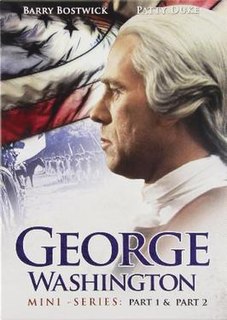
The United States Merchant Marine refers to either United States civilian mariners, or to U.S. civilian and federally owned merchant vessels. Both the civilian mariners and the merchant vessels are managed by a combination of the government and private sectors, and engage in commerce or transportation of goods and services in and out of the navigable waters of the United States. The Merchant Marine primarily transports cargo and passengers during peacetime; in times of war, the Merchant Marine can be an auxiliary to the United States Navy, and can be called upon to deliver military personnel and materiel for the military. Merchant Marine officers may also be commissioned as military officers by the Department of Defense. This is commonly achieved by commissioning unlimited tonnage Merchant Marine officers as Strategic Sealift Officers in the Naval Reserves.
The Worshipful Company of Mercers is the premier Livery Company of the City of London and ranks first in the order of precedence of the Companies. It is the first of the Great Twelve City Livery Companies. Although of even older origin, the Company was incorporated under a Royal Charter in 1394, the Company's earliest extant Charter. The Company's aim was to act as a trade association for general merchants, and especially for exporters of wool and importers of velvet, silk and other luxurious fabrics (mercers). By the 16th century many members of the Company had lost any connection with the original trade. Today, the Company exists primarily as a charitable institution, supporting a variety of causes. The Company's motto is Honor Deo, Latin for "Honour to God".

The Merchant Navy is the maritime register of the United Kingdom, and comprises the seagoing commercial interests of UK-registered ships and their crews. Merchant Navy vessels fly the Red Ensign and are regulated by the Maritime and Coastguard Agency (MCA). King George V bestowed the title of "Merchant Navy" on the British merchant shipping fleets following their service in the First World War; a number of other nations have since adopted the title.
The United States service academies, also known as the United States military academies, are federal academies for the undergraduate education and training of commissioned officers for the United States Armed Forces.

The United States Merchant Marine Academy, one of the five United States service academies, is located in Kings Point, New York. It is charged with training officers for the United States Merchant Marine, branches of the military, and the transportation industry. Midshipmen are trained in marine engineering, navigation, ship's administration, maritime law, personnel management, international law, customs, and many other subjects important to the task of running a large ship.

The Distinguished Service Medal (DSM) was a military decoration awarded until 1993 to personnel of the Royal Navy and members of the other services, and formerly to personnel of other Commonwealth countries, up to and including the rank of Chief Petty Officer, for bravery and resourcefulness on active service at sea.
Military leadership in the American Civil War was influenced by professional military education and the hard-earned pragmatism of command experience. While not all leaders had formal military training, the United States Military Academy at West Point, New York and the United States Naval Academy at Annapolis created dedicated cadres of professional officers whose understanding of military science had profound effect on the conduct of the American Civil War and whose lasting legacy helped forge the traditions of the modern U.S. officer corps of all service branches.

John Mercer Brooke was an American sailor, engineer, scientist, and educator. He was instrumental in the creation of the Transatlantic Cable, and was a noted marine and military innovator.
Mercery initially referred to silk, linen, and fustian textiles imported to England in the 12th century.

John Mercer Patton was a nineteenth-century politician and lawyer from Virginia. Patton served in the United States House of Representatives representing two different Virginia Districts, and was the acting governor of Virginia for twelve days in 1841.
John Mercer was a colonial American lawyer, land speculator, and author.

Major-General Malcolm Smith Mercer, CB was a Canadian general, barrister and art patron who practiced law in Toronto and led the 3rd Canadian Division during the first two years of the First World War before he was killed in action at Mount Sorrel in Belgium. Mercer was an experienced militia commander and had demonstrated a great flair with training and organising the raw Canadian recruits during the opening months of the war. He also demonstrated courage under fire, visiting the front lines on numerous occasions at the height of battle and personally directing his forces in the face of poison gas attacks and heavy shellfire.

George Washington is a 1984 American television miniseries directed by Buzz Kulik. The miniseries, released in three parts, chronicles the life of George Washington, the 1st President of the United States, from age 11 to age 51. George Washington is based on the biography by James Thomas Flexner.

Events from the year 1718 in Canada.
George Whitmore may refer to:

Impressment by the Royal Navy in Nova Scotia happened primarily during the American Revolution and the Napoleonic Wars. Guard boats patrolled Halifax harbour day and night and they boarded all incoming and outgoing vessels. The Navy always struggled with desertion in Nova Scotia, and it often threatened to use impressment as a punishment for communities that harboured and assisted deserters. The Navy used guard boats as floating press gangs, conscripting every fiftieth man out of ships entering the harbour. It even pressed Americans from cartels and prison hulks. Warships shot at vessels to bring them to, damaging their sails and rigging, and at least one fisherman was pressed while checking his nets.
The King's Birthday Honours 1941 were appointments in the British Empire of King George VI to various orders and honours to reward and highlight good works by citizens of various countries. The appointments were made to celebrate the official birthday of The King, and were published on 6 June 1941.
The King's Birthday Honours 1942 were appointments by King George VI to various orders and honours to reward and highlight good works by members of the British Empire. They were published on 5 June 1942 for the United Kingdom and Canada.
The King's Birthday Honours 1943 were appointments by King George VI to various orders and honours to reward and highlight good works by people of the British Empire. They were published on 2 June 1943 for the United Kingdom and Canada.








